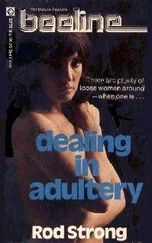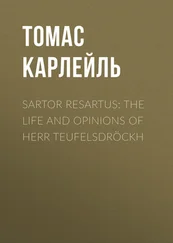Vladimir Nabokov - Strong opinions
Здесь есть возможность читать онлайн «Vladimir Nabokov - Strong opinions» весь текст электронной книги совершенно бесплатно (целиком полную версию без сокращений). В некоторых случаях можно слушать аудио, скачать через торрент в формате fb2 и присутствует краткое содержание. Город: New York, Год выпуска: 1990, Издательство: First Vintage International Edition, Жанр: Классическая проза, на английском языке. Описание произведения, (предисловие) а так же отзывы посетителей доступны на портале библиотеки ЛибКат.
- Название:Strong opinions
- Автор:
- Издательство:First Vintage International Edition
- Жанр:
- Год:1990
- Город:New York
- ISBN:нет данных
- Рейтинг книги:4 / 5. Голосов: 1
-
Избранное:Добавить в избранное
- Отзывы:
-
Ваша оценка:
- 80
- 1
- 2
- 3
- 4
- 5
Strong opinions: краткое содержание, описание и аннотация
Предлагаем к чтению аннотацию, описание, краткое содержание или предисловие (зависит от того, что написал сам автор книги «Strong opinions»). Если вы не нашли необходимую информацию о книге — напишите в комментариях, мы постараемся отыскать её.
Strong opinions — читать онлайн бесплатно полную книгу (весь текст) целиком
Ниже представлен текст книги, разбитый по страницам. Система сохранения места последней прочитанной страницы, позволяет с удобством читать онлайн бесплатно книгу «Strong opinions», без необходимости каждый раз заново искать на чём Вы остановились. Поставьте закладку, и сможете в любой момент перейти на страницу, на которой закончили чтение.
Интервал:
Закладка:
The word « mollitude », which I use a few times, has been now so often denounced that it threatens to become almost a household word, like «nymphet». One of my most furious and inarticulate attackers seems to be an intimate friend of Belinski (born 1811), as well as of all the paraphrasts I «persecute». The fury is, I suppose, pardonable and noble, but there would be no sense in my reacting to it. I shall also ignore some of the slapstick — such as a little item in The New Republic (April 3, 1965) which begins «Inspector Nabokov has revisited the scene of the crime in L'affaire (Jnegutne» and is prompted by a sordid little grudge of which the editor, presumably, had no knowledge. A reviewer writing in the Novyy Zhurnal (No. 77), Mr. Moris Fridberg — whom I am afraid I shall be accused of having invented — employs a particularly hilarious brand of bad Russian ( kak izvestno dlya lyubogo studenta , as known «for» every student) to introduce the interesting idea that textual fidelity is unnecessary because «in itself the subject-matter of [Pushkin's] work is not very important». He goes on to complain that I do not say a word about such Pushkinists as Modzalevski, Tomashevski, Bondi, Shchyogolev, and Gofman — a statement that proves he has not only not read my commentary, but has not even consulted the Index; and on top of that he confuses me with Professor Arndt whose preliminary remarks about his «writing not for experts but students» Mr. Fridberg ascribes to me. A still more luckless gentleman (in the Los Angeles Times) is so incensed by the pride and prejudice of my commentary that he virtually chokes on his wrath and after enticingly entitling his article «Nabokov Fails as a Translator» has to break it off abruptly without having made one single reference to the translation itself. Among the more serious articles there is a long one in The New York Times Book Review, June 28, 1964, by Mr. Ernest Simmons, who obligingly corrects what he takes to be a misprint in One: xxv: 5; «Chadaev», he says, should be «Chaadaev»; but from my note to that passage he should have seen that «Chadaev» is one of the three forms of that name, and also happens to be Pushkin's own spelling in that particular line, which otherwise would not have scanned.
For obvious reasons I cannot discuss all the sympathetic reviews. I shall only refer to some of them in order to acknowledge certain helpful suggestions and corrections. I am grateful to John Bayley (The Observer, November 29, 1964) for drawing my attention to what he calls — much too kindly, alas — «the only slip» in my commentary: uAuf alien Gipfeln» (in the reference to Goethe's poem) should be corrected to « Ueber alien Uipfeln». (1 can add at least one other: My note to Two: xxxv: 8 contains a silly blunder and should be violently deleted.) Anthony Burgess in Encounter has suddenly and conclusively abolished my sentimental fondness for FitzGerald by showing how he falsified the «witty metaphysical tentmaker's» actual metaphors in «Awake] for morning in the bowl of Night . . . «. John Wain, in The Listener (April 29, 1965), by a sheer feat of style has made me at once sorry for one of my «victims» and weak with laughter: «This [the discussion of prosody], by the way, is the section in which Arthur Hugh Clough gets described as a poetaster; the effect is like that of seeing an innocent bystander suddenly buried by a fall of snow from a roof . . . «. J. Thomas Shaw, in The Russian Review (April 1965), observes that I should have promoted Pushkin after his graduation to the tenth civil rank («collegiate secretary») instead of leaving him stranded on the fourteenth rung of the ladder; but I cannot find in my copy the misprinted Derzhavin date which he also cites; and I strongly object to his listing James Joyce, whom I revere, among those writers whom I condemn «in contemptuous asides» (apparently Mr. Shaw has dreadfully misunderstood what I say about Joyce's characters falling asleep by applying it to Joyce's readers). Finally, the anonymous reviewer in The Times Literary Supplement (January 28, 1965) is perfectly right when he says that in my notes I do not discuss Pushkin's art in sufficient detail; he makes a number of attractive suggestions which, together with those of two other reviewers and several correspondents, would make a fifth volume, or at least a very handsome Festschrift. The same reviewer is much too lenient when he remarks that «a careful scrutiny of every line has failed to reveal a single careless error in translation». There are at least two: in Four: xliii: 2T the word «but» should be deleted, and in Five: xi: 3, «lawn» should be «plain».
The longest, most ambitious, most captious, and, alas, most reckless, article is Mr. Edmund Wilson's in I he New York Review of Books (July 15, 1965)*, and this I now select for a special examination.
* This is the text readers should consult. It is reprinted in an abridged, emended, and incoherent form in Edmund Wilson's A Window on Russia Farrar, Straus & Giroux, New York, 1972.
A number of earnest simpletons consider Mr. Wilson to be an authority in my field («he misses few of Nabokov's lapses», as one hasty well-wisher puts it in a letter to The New York Review on August 26), and no doubt such delusions should not be tolerated; still, I am not sure that the necessity to defend my work from blunt jabs and incompetent blame would have been a sufficient incentive for me to discuss that article, had I not been moved to do so by the unusual, unbelievable, and highly entertaining opportunity that I am unexpectedly given by Mr. Wilson himself of refuting practically every item of criticism in his enormous piece. The mistakes and misstatements in it form an uninterrupted series so complete as to seem artistic in reverse, making one wonder if, perhaps, it had not been woven that way on purpose to be turned into something pertinent and coherent when reflected in a looking glass. I am unaware of any other such instance in the history of literature. It is a polemicist's dream come true, and one must be a poor sportsman to disdain what it offers.
As Mr. Wilson points out with such disarming good humor at the beginning of his piece, he and I are old friends. I fully reciprocate «the warm affection sometimes chilled by exasperation» that he says he feels for me. When I first came to America a quarter of a century ago, he wrote to me, and called on me, and was most kind to me in various matters, not necessarily pertaining to his profession. I have always been grateful to him for the tact he showed in not reviewing any of my novels while constantly saying flattering things about me in the so-called literary circles where I seldom revolve. We have had many exhilarating talks, have exchanged many frank letters. A patient confidant of his long and hopeless infatuation with the Russian language and literature, I have invariably done my best to explain to him his monstrous mistakes of pronunciation, grammar, and interpretation. As late as 1957, alone of our last meetings, in Ithaca, upstate New York, where I lived at the time, we both realized with amused dismay that, despite my frequent comments on Russian prosody, he still could not scan Russian verse. Upon being challenged to read Evgeniy Onegin aloud, he started to perform with great gusto, garbling every second word, and turning Pushkin's iambic line into a kind of spastic anapest with a lot of jaw-twisting haws and rather endearing little barks that utterly jumbled the rhythm and soon had us both in stitches.
In the present case, I greatly regret that Mr. Wilson did not consult me about his perplexities, as he used to in the past. Here are some of the ghastly blunders that might have been so easily avoided.
«Why», asks Mr. Wilson, «should Nabokov call the word netu an old-fashioned and dialect form of net. It is in constant colloquial use and what I find one usually gets for an answer when one asks for some book in the Soviet bookstore in New York». Mr. Wilson has mistaken the common colloquial netu which means «there is not», «we do not have it», etc., for the obsolete netu which he has never heard and which as I explain in my note to Three: hi: 12, is a form of net in the sense of «not so» (the opposite of «yes»).
Читать дальшеИнтервал:
Закладка:
Похожие книги на «Strong opinions»
Представляем Вашему вниманию похожие книги на «Strong opinions» списком для выбора. Мы отобрали схожую по названию и смыслу литературу в надежде предоставить читателям больше вариантов отыскать новые, интересные, ещё непрочитанные произведения.
Обсуждение, отзывы о книге «Strong opinions» и просто собственные мнения читателей. Оставьте ваши комментарии, напишите, что Вы думаете о произведении, его смысле или главных героях. Укажите что конкретно понравилось, а что нет, и почему Вы так считаете.










